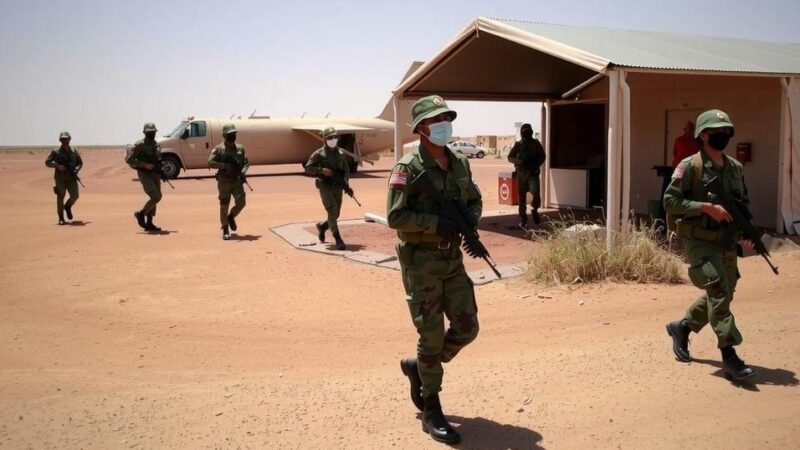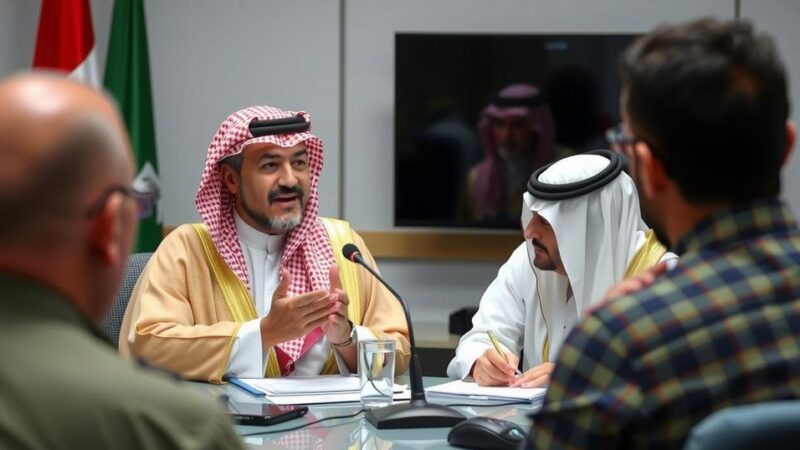As South Sudan nears the end of 2024, the adjournment of the Tumaini peace process casts doubt on hopes for lasting peace. Key political issues remain unresolved, exacerbating humanitarian crises affecting millions. Despite these challenges, opportunities for meaningful progress in 2025 exist if leaders prioritize unity and collaborative governance, supported by civil society and international partners.
As South Sudan approaches the conclusion of 2024, the anticipation for a peaceful Christmas among its citizens has been dimmed by the stalling of the Tumaini peace process. This nation, ravaged by prolonged warfare and political discord, faces critical questions: Can South Sudan realize lasting peace in 2025, or will the persistence of unresolved challenges derail progress?
The Tumaini process was designed to address urgent political and security issues within South Sudan. Nonetheless, essential matters, including the unification of armed forces, constitutional amendments, and an equitable governance structure, remain unaddressed. The current adjournment illustrates deep-rooted political divisions and escalating distrust among leaders, thwarting any viable solutions that could lead to change. Past agreements, notably the Revitalized Agreement on the Resolution of Conflict in South Sudan (R-ARCSS), initially offered hope but have since been undermined by implementation failures, leading to public disillusionment.
The human impact of the ongoing conflict is dire, with over 9 million people, or nearly 75 percent of the population, now dependent on humanitarian aid. Continued violence has resulted in widespread displacement and the deterioration of essential services. Rural communities still face threats from cattle raiding and armed conflict, tearing apart the fabric of society. As the Tumaini process stalls, many citizens are left uncertain about the potential for improvement in 2025.
Despite these setbacks, prospects for progress remain on the horizon. Sustainable peace will necessitate courageous leadership and an unwavering commitment to dialogue and collaboration. Leaders must transcend personal agendas and focus on the collective welfare of their constituents. The engagement of civil society, particularly youth and women’s organizations, is vital for fostering inclusivity in the peace dialogue. Regional and international entities, including the Intergovernmental Authority on Development (IGAD), the African Union (AU), and the United Nations, must also persist in holding South Sudan’s leaders accountable for their commitments to peace.
While the postponement of the Tumaini process was disheartening, the endurance of the South Sudanese people offers a glimmer of hope. For progress to materialize, it is imperative that leadership within the country exhibits both political will and ethical commitment. The pursuit of peace transcends mere political necessity; it is an ethical obligation owed to future generations yearning for a stable and harmonious homeland.
As the year 2025 approaches, the call for peace intensifies. The time has come for proactive measures and unified intentions toward a peaceful and prosperous South Sudan. The journey may be fraught with challenges, yet the vision of peace is attainable, provided there is trust, compromise, and collective action among the leaders and their constituents.
The struggles of South Sudan highlight a national crisis stemming from decades of conflict and political instability, leading to a humanitarian situation wherein a vast majority of the population relies on aid for survival. Previous peace agreements have faltered due to political infighting and failure to implement reforms that address security and governance. The Tumaini process was initiated to create a framework for negotiation but has stalled, leaving citizens in a state of uncertainty and fear regarding their future.
In summary, while South Sudan is poised on the brink of a potential peace milestone in 2025, significant hurdles remain. The commitment of its leaders, the support from civil society, and the influence of regional and international actors will be integral to overcoming these challenges. Peace, once achieved, will stand as the most vital gift for the citizens of South Sudan, fostering a future founded on stability and unity.
Original Source: www.radiotamazuj.org







